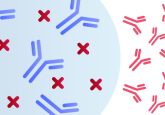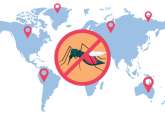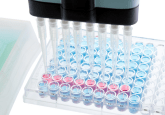New AI tool predicts multiple sclerosis drug response

Brazilian and French scientists have developed an innovative AI-driven tool that predicts whether patients with multiple sclerosis (MS) will respond to natalizumab.
Led by scientists from the University of São Paulo (Brazil), Oswaldo Cruz Foundation (Rio de Janeiro, Brazil) and Toulouse University (France), the study introduces a predictive tool that analyzes immune cell behavior to determine whether a patient will benefit from natalizumab—a widely used but not universally effective drug for treating MS.
MS is a chronic autoimmune disease affecting nearly 2.8 million people globally. Despite advancements in treatment, predicting how a patient will respond to specific therapies remains a major clinical challenge. Although natalizumab works well for many, 35% of patients experience a return of symptoms alongside the risk of serious side effects.
Using high-content imaging—a technique harnessing automated image analysis to extract cellular information, including shape, size, protein localization and drug response—and machine learning, the team studied CD8+ T cells exposed to the drug. They discovered that in non-responders, these cells retained abnormal shapes and movement patterns linked to actin remodeling, indicating resistance to treatment. By extracting and analyzing over 400 morphological profile characteristics, the model was able to predict treatment outcomes with up to 92% accuracy.
You may also be interested in:
- In the Zone: targeted MS imaging for molecular spatial information
- Scaling biomarker discovery: more data, deeper insights with Sapient Bioanalytics
- Implementing AI-driven digital transformation in bioanalysis
As well as being advantageous over traditional personalized medicine approaches such as cytometry, serology or transcriptomics, the advancement could reduce trial-and-error prescriptions, prevent unnecessary side effects and save public healthcare systems significant costs. In Brazil, natalizumab costs around 10,000 BRL (almost 2000 USD) per patient per month through the Sistema Único de Saúde—Brazil’s healthcare system.
The team now plans to test the approach with broader patient groups and explore its use in other diseases, with the potential to make precision medicine more accessible and impactful across global healthcare systems:
“Now we’ll look for ways to test with a larger number of patients, including those from other countries and regions. Another avenue is to make the morphology marker more accessible, with the possibility of using simpler and cheaper equipment. There’s also the possibility of applying the methodology to other diseases, as one colleague is already doing while studying CAR-T therapy against cancer,” explained Beatriz Chaves, a researcher at the Institute of Infectious and Inflammatory Diseases in Toulouse (France) who has also been studying MS at the Oswaldo Cruz Foundation.






